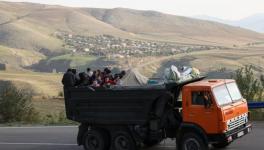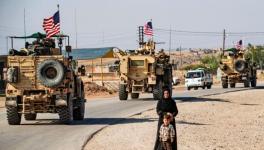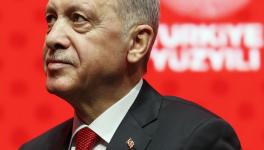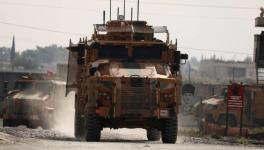Dismantle the Global War Economy: Vijay Prashad
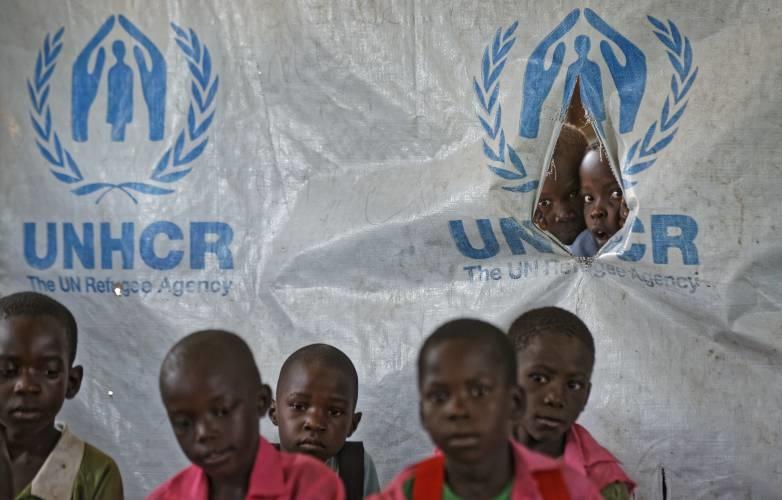
Camps from Turkey to Uganda hold close to 66 million people as registered refugees and displaced persons. That means that there are more registered refugees than there are people who hold citizenship in the United Kingdom, the 21st largest country in the world.
Most of the registered refugees come from Syria, Afghanistan and South Sudan — countries wracked by war. Each day, according to the U.N. Refugee Agency, 28,300 people flee their homes because of conflict and persecution. That’s the population of Northampton. This means that each day, the entire city of Northampton is cleared out and each of its residents is made into a refugee. That’s the state of our world.
Walking through these camps is an education. One meets people of great integrity who have fled their homes out of desperation. Their U.N. tents are decorated with feeling, flowers at the entrance, belongings huddled away, warm cups of tea circulated around to the visitors.
Stories of one family run into stories of another. These are repetitious tales, always of people who did not want wars, but whose lives were disrupted by them. UNICEF, the U.N. Children’s Fund, says that half of the refugees are children, most of whom struggle to maintain their education and their health. Pictures by the children are often of war. It has marked their sense of the world. Bombers hover over their towns, bombs fall around them.
People who have suffered from war often say that what they want more than anything else is for war to end. Certainly, there are among them political people who would want one side or the other to win, and, certainly, even the most apolitical see their own attitudes harden as they become pawns in someone else’s battle. But the line of thought that unites most refugees is for the guns to go silent.
Merchants of death
These wars are not so far away. The bombs that fall on Sana’a or the bullets fired in Opari are manufactured neither in Yemen nor in South Sudan, respectively. They come from factories in the West.
The annual report from the Stockholm International Peace Research Institute finds that arms sales have increased during the past year. The top 100 arms dealers in the world sold arms worth $374.8 billion, with United States firms selling $217.2 billion — the vast bulk of these weapons. This means that 57.9 percent of arms sales are from U.S. companies.
If you add in the United Kingdom and the European states, then the West’s total contribution to world arms sales is 81 percent. The West produces the armaments that heighten the conflicts from Northern Africa to Central Asia.
It is not enough to say that these wars are eternal or that they are caused by fundamentalism of this variety or that. The arms dealing that takes place in the world fuels these wars.
Today, the U. S. is the world’s most deadly arms dealer and it is the largest market for weapons. The U.S. government will spend $700 billion on arms – three times more than China, 10 times more than Russia. In fact, the increase in U.S. military spending — $80 billion — is greater than the total Russian military budget.
This gargantuan military spending combined with belligerent talk from Washington about regime change in North Korea and Iran make normal a culture of war that leads from the offices of Lockheed Martin — the world’s largest arms dealer to the small villages of Afghanistan. War is close to both the refugee camps and to the antiseptic offices of the Western arms merchants.
Wants to go home
Milly Lag fled with her six children from South Sudan for a camp in Uganda. They did not come because they wanted to, she says. They fled war, which has left six million near starvation and incomes halved since 2013. She longs to return home. “You know, there is no place like home,” Milly says.
Small, mysterious English, Ukrainian, Israeli and Emirati firms are on record as having sold the arms to both sides of this war. Behind these small firms exist the larger behemoths, whose weapons tear people like Milly from their homes.
CODEPINK, a US-based activist group led by women, has a campaign called Divest from the War Machine (www.divestfromwarmachine.org). This is perhaps the most important gesture anyone in the United States can make to help people like Milly and to create a world without war.
Refugees do not necessarily want to leave their homes. They do not want to live in camps. What they want is an end to war. They need you to join campaigns such as this to dismantle the global war economy. Break the war habit. Let Milly and her children return home.
Vijay Prashad, of Northampton, is the executive director of Tricontinental: Institute for Social Research and chief editor of LeftWord Books. He also reports for Frontline in India and AlterNet in the United States.
Get the latest reports & analysis with people's perspective on Protests, movements & deep analytical videos, discussions of the current affairs in your Telegram app. Subscribe to NewsClick's Telegram channel & get Real-Time updates on stories, as they get published on our website.










